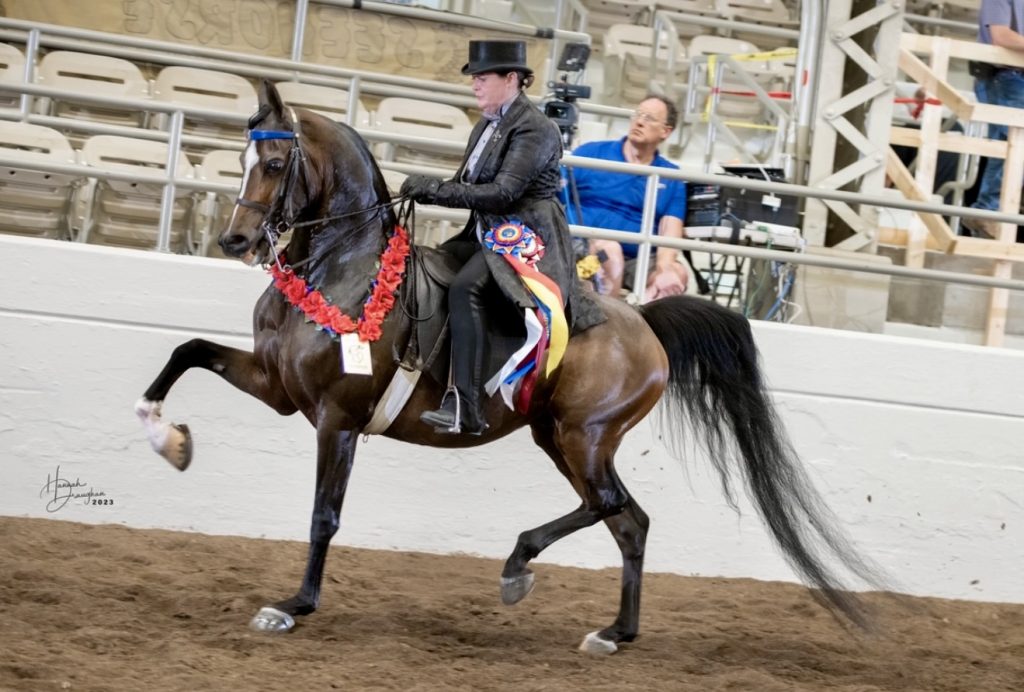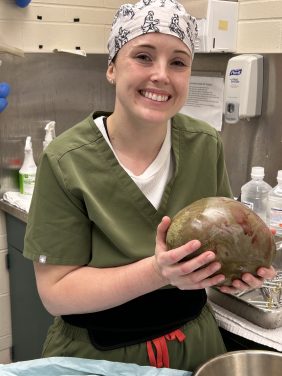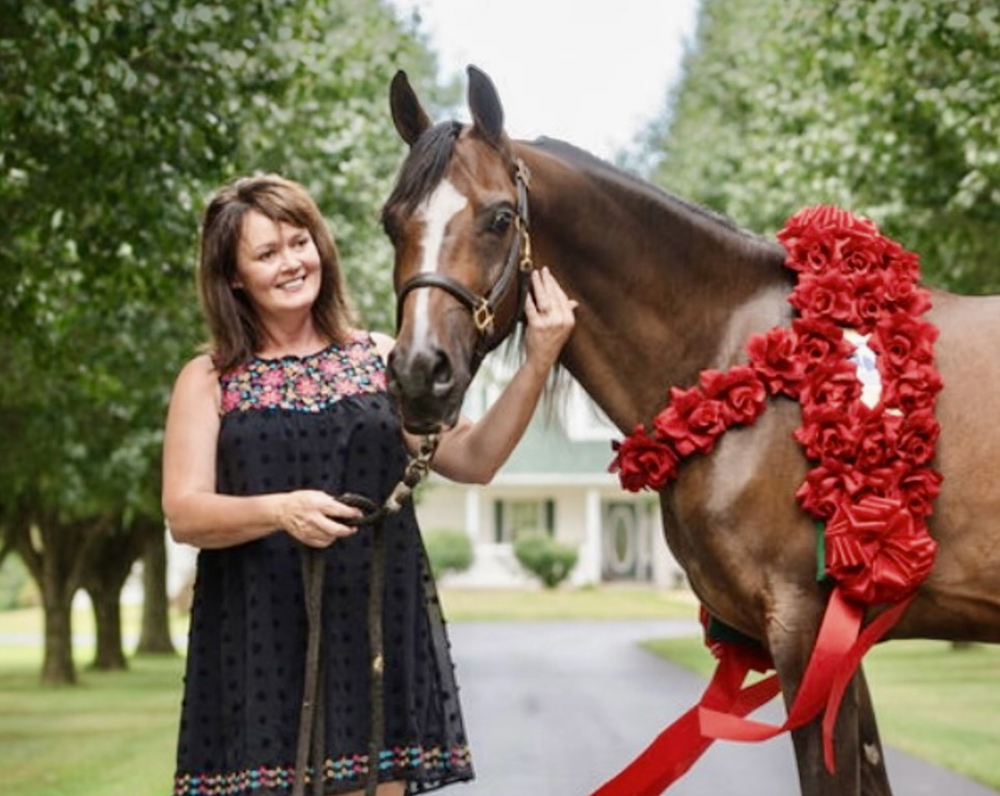Published on
Updated on

Published 6/16/25
Story contact: Deidra Ashley, CVMMarCom@missouri.edu
Photos courtesy Cindy Crawford and Megan McCracken
Just like the icon who shares his name, Elvis the horse was born for the spotlight. A striking 11-year-old dark bay Arabian gelding with a championship pedigree and enough personality for a dozen horses, he dominated the national show circuit. But behind the ribbons and ring lights, Elvis was quietly fighting a battle invisible to the naked eye.
“He kept having these off-and-on colic episodes, and we just couldn’t figure out why,” said Cindy Crawford, Elvis’s owner.
A lifelong horsewoman based in Farmington, Missouri, Crawford partnered closely with her longtime veterinarian, Martha Huck, DVM ’08, of Jackson, Missouri, to get to the bottom of it. Together, they explored every likely cause.
“We treated the ulcers, changed his diet, tried everything we could think of — and just when it seemed like he was turning a corner, it would all start again,” Crawford said. “It was exhausting, frustrating and honestly a little scary.”
After Elvis’s fourth trip to the vet in less than a year, Huck recommended he visit the equine specialists at the University of Missouri Veterinary Health Center for advanced diagnostics.

A diagnosis with weight
Upon arrival, Elvis was evaluated by the equine internal medicine service. At first, nothing seemed out of the ordinary — his physical exam was normal, and a repeat gastroscopy showed his ulcers were healing. But when the team performed abdominal radiographs, the mystery unraveled in almost an instant.
“There was a huge, dense shadow dominating the image,” said Megan McCracken, DVM, MS, DACVS-LA, an assistant teaching professor of equine surgery. “It was unmistakable — Elvis had a massive enterolith, one that had likely been forming for months, if not years.”
Enteroliths are mineral concretions — essentially intestinal stones — that form in the large colon, often layering over time around a small object like a pebble, piece of twine or undigested feed. While they’re relatively common in states like California and Florida, where mineral-rich soil and forage contribute to their formation, they’re rare in the Midwest. Fortunately for Elvis, his surgeon, who trained in California, knew exactly what she was looking at.
“I was shocked by how large the stone was, but I was also relieved,” McCracken said. “It not only explained the cycle of colic, ulcers and setbacks Elvis had been trapped in — we finally had a diagnosis, and it was one we could fix.”
The very next day, McCracken led a carefully choreographed surgery to remove the stone. With faculty, residents, interns and support staff each playing a role, the team worked in sync to gently maneuver the seven-pound mass out.
“It takes a lot of coordination and communication to safely remove something that large,” McCracken said. “Everyone executed their part perfectly, and with a stone that size, it was all hands on deck.”
Back in the spotlight
Elvis bounced back quickly after surgery, spending just over a week in the hospital before heading home to finish his months-long recovery.
By fall, Elvis wasn’t just back on his feet, he was back in the show ring.
“We took his recovery slow, but Elvis kept telling us he was ready to show again,” Crawford said. “He was playful and sassy again, grabbing my coat, nibbling my hair and getting into everything … that’s how I knew he felt good.”
In October — just five months after major abdominal surgery — Elvis returned to the national championships and won his class.
“His recovery still blows my mind,” Crawford said. “To think he went top 10 the year before while carrying that stone — he’s just an incredible horse.”
While Crawford still manages Elvis’s ulcers, she said the difference since his surgery has been night and day. “He’s sound, happy and back to being a total nuisance — which, for Elvis, is the best sign.”
Crawford says she’s grateful not only for the successful outcome, but for the people who made it possible.
“I’m so grateful for Dr. Huck, and I feel incredibly lucky to have access to a place like the Veterinary Health Center,” she said. “They kept me informed, answered every question and treated Elvis like the star he is. I’ll never stop being thankful — they gave me my horse back.”
